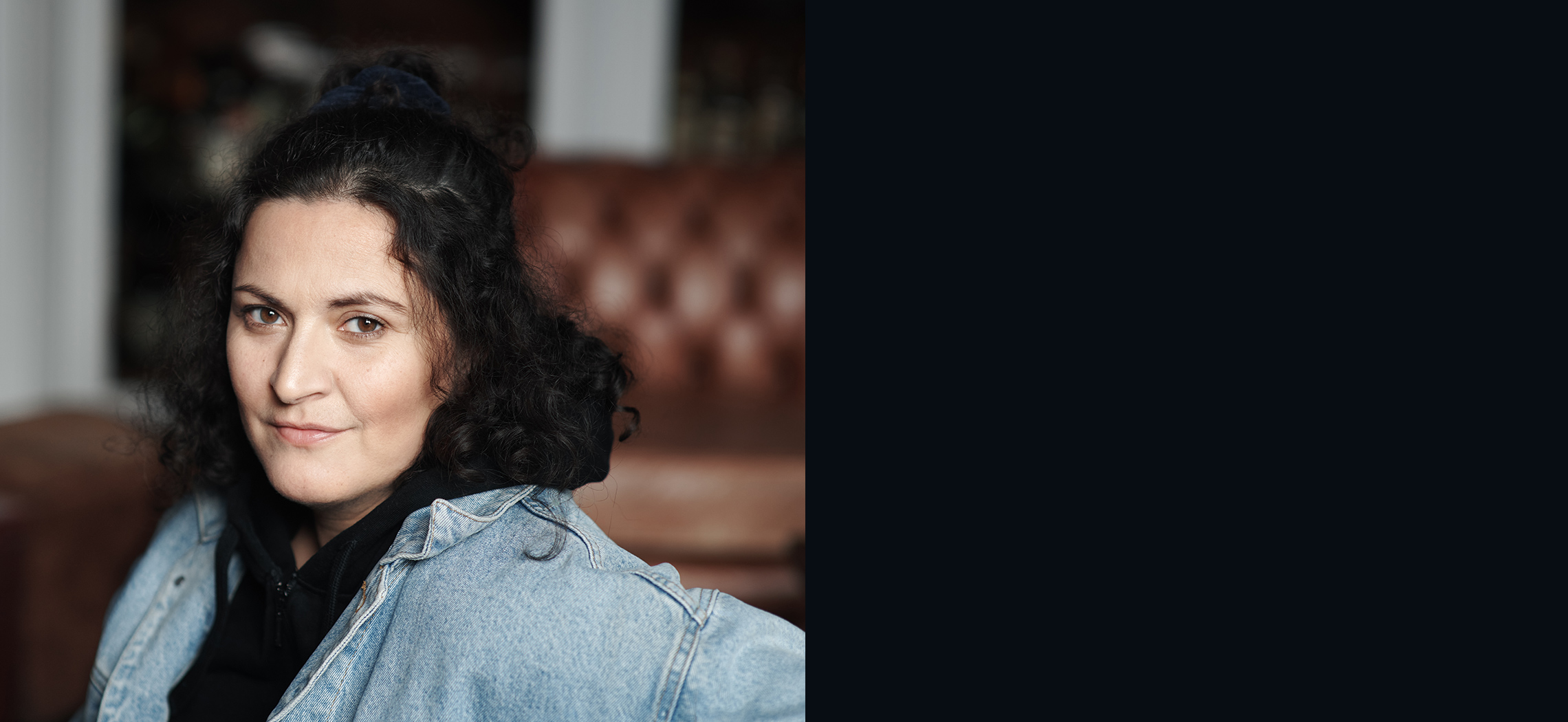A PORTRAIT OF DIRECTOR SABRINA SARABI
Sabrina Sarabi © Martina ThalhoferA young woman vacillating between frustration and rebellion. A young man searching for himself: torn between passion and compulsion, great talent and exaggerated ambition, he gets irretrievably lost along the way. A depiction of the narrow, self-fixated world of art, and a portrait of the provinces...
Born in 1982, so far Sabrina Sarabi has made only two feature films – but she is already among the most important voices of recent German cinema. Despite all their differences, Sarabi’s debut, PRELUDE, and NO ONE’S WITH THE CALVES have in common that they are remarkable stories, told in an intense, emotional, and occasionally very open way – a dazzling openness that touches us particularly. And they are outstanding acting productions. Sarabi is among the most interesting voices of the German film landscape; a cinema that abandons middle-class conditions and upper-class urban apartments and takes a fresh, untainted look at the way things really are. This is cinema with an interest in social realities without lapsing into social kitsch, and in new experiences. Curiosity is important to Sarabi, along with productive doubt.
“There’s nothing worse than claiming something you don’t believe in,“ Sarabi says during our conversation in a cafe in Berlin-Mitte, “a director must be able to tolerate questioning and a lack of clarity. That rubs off on the film and its audience.“
Sarabi was born in Kassel in northern Hesse, the daughter an Iranian immigrant. However, she spent most of her childhood in Krefeld in the west of the Republic. But she encountered another world mainly through her family: “If the Iranian Revolution in 1979 had turned out differently, my life could have been very different, too“. Her father came to West Germany to study, long before the revolution. The rest of the family gradually followed. “The Iranian element is certainly very important to me,“ says Sarabi, “even though I have never been there. Because unlike some other parts of my family, we never travelled there.“ Nevertheless, Sarabi says she feels a very strong connection to Iranian culture. Despite its security, in her childhood she also had a sense of being “slightly different.“
But it was not Iran‘s great cinematic tradition that brought Sarabi to filmmaking. “In my childhood I watched very commercial films. I used VHS to record everything, carefully cut out the commercials, and showed the results to my whole family.“ In her youth, a different art form took centre stage: music. For a while, she wanted to study the violin. So she went to Utrecht in the Netherlands, where she took violin lessons, and at the same time began to study theatre and film studies. “During a directing workshop, I realised how much it interested me.“ She began studying film directing at the KHM in Cologne in 2006.
What has influenced her in particular? One influence, she admits, has been the French director, Maurice Pialat: “I like his whole approach, his very naturalistic, documentary works. The characters have a lot of versatility, they have so many facets.“ Among more recent filmmakers, she adds, it‘s Andrea Arnold, “who is a major role model for me. And Maren Ade. With both of them I have the feeling that they do a lot of intense research, that everything, even the small moments in between, is worked out with great intricacy – I like that very much.“
These influences can be spotted in her own films, although the two works are very different. NO ONE’S WITH THE CALVES premiered in Locarno, where lead actress Saskia Rosendahl won the award for “Best Actress“. It was made very quickly after Sarabi’s debut, which many filmmakers fail to achieve. She produced both films with Weydemann Bros. “They offered excellent, reliable cooperation,“ says Sarabi, who is also realising her next projects, a new feature film and a series, with the company.
Her films – and this must be seen as a compliment in this country – are not at all “typically German“. Sarabi‘s cinema is a cinema of excess, visions, small escapes and those forgotten dreams of everyday life. Curious, tentative, lustful and sensual, hedonistic in some respects, Sarabi often succeeds in bringing to the screen what many other European women directors can only talk about: a woman’s perspective.
Rüdiger Suchsland

